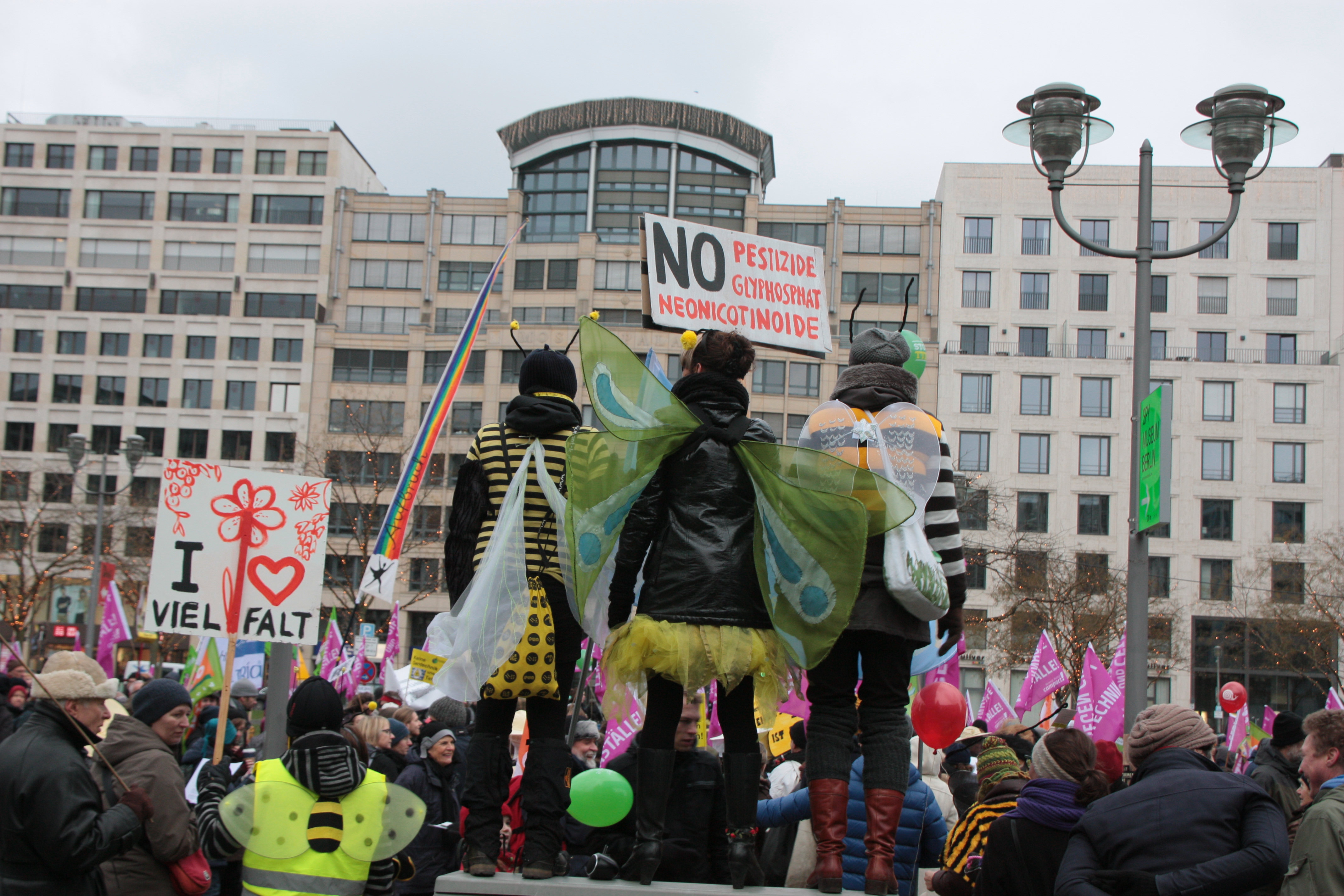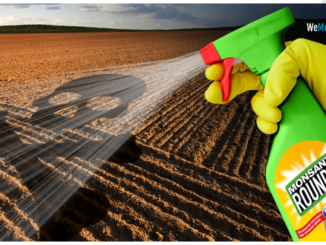What was supposed to be a fairly routine renewal of the herbicide glyphosate has turned into a quicksand quagmire. The European Commission has twice now failed to approve the controversial substance, as enough member states could not be mustered to support it. And the approval deadline of 30th June is fast approaching. Oliver Moore gives us an update.

Last Wednesday and Thursday, a qualified majority for glyphosate approval was needed in the Standing Committee on Plants, Animals, Food and Feed. This did not happen. The approval deadline is June 30. After this date – unless some sort of compromise is reached in the meantime – products containing glyphosate will have to be withdrawn from the EU market, following a six month grace period.
Along with intense public pressure, a major stumbling block to glyphosate approval is Germany. There, the main government parties are now split on approval, with the CPU in favour of approval and the SPD – initially also in favour with restrictions – now against. This is especially noteworthy because Germany held the original task of leading the safety assessment of glyphosate for the European Food Safety Authority. “Germany evaluates glyphosate and a sample formulation of a plant protection product containing glyphosate. In this framework Germany acts as Rapporteur Member State (RMS) writing a draft re-assessment report” BfR reported.
Because of its responsibility in the process, some undecided member states – such as Italy, Slovakia, Austria, Portugal and the Netherlands – are looking to Germany for a lead. And Germany is not giving one.
Read: All ARC2020 articles on pesticides
What’s next?
Though the Commission does not like the idea, one route for glyphosate approval is via appeals committee. As the Guardian reported on the 20th:
“Under bloc rules, the commission could now go to an appeals committee but this would have the same balance of countries as the standing committee that has now twice failed to take a decision.
It could also go over the heads of the EU states and independently reauthorise glyphosate as a draft measure. The EU president Jean-Claude Juncker has said that he opposes doing this and officials doubt it will happen, although the procedure has been used to approve GM crops for import. A short-term license might also be possible.”
After the appeals committee, the whole dossier is given to the College of Commissioners. This typically takes up to six weeks – crucially in time for June 30th. Politico suggests that, though “confusion reigns” a next step could be that “the Commission could go for the Parliament’s proposal and push a 7-year extension. Or it could extend glyphosate’s authorization until the European Chemicals Agency issues an opinion (expected 2017).”
While 19 member states are in favour, France is now very much set against; Italy is possibly against and others such as Sweden, Austria, Luxembourg and Slovakia may abstain.
Politico’s latest briefing (paywalled) suggests two options for member states.
“The first option is renewal for one to two years, the expected time for a safety assessment now in progress at the European Chemicals Agency.
The second option, if Germany does not change its current position abstaining, could be for the Commission to simply do nothing and let the June 30 deadline for reauthorization come and go. Officials are aware of potential lawsuits from Monsanto in this case. In this scenario, after a six-month grace period, all products containing glyphosate would have to be pulled from the EU market. The Commission has given member countries until Tuesday evening, or “even Wednesday noon if needed” to decide, according to one of the sources.”
Expect more twists and turns – this week and towards June 30th – as this saga unfolds.
Timeline up to last week’s failed vote
20th May Via Euractiv “The president of the republic stated very clearly at the latest environmental conference that glyphosate would not be authorised in France,” said Marisol Touraine, the French minister for health. “Quite apart from the debates on whether or not glyphosate is a carcinogen, we believe, and our studies show, that it is an endocrine disruptor,” she added.
17th May Via The Intercept “Independent scientists have been reporting since at least 1991 that pesticides containing glyphosate along with other ingredients were more dangerous than glyphosate on its own. More recently, two papers — one published in 2002, the other in 2004 — showed that Roundup and other glyphosate-containing weed formulations were more likely to cause cell-cycle dysregulation, a hallmark of cancer, than glyphosate alone. In 2005, researchers showed that Roundup was more harmful to rats’ livers than its “active ingredient” by itself. And a 2009 study showed that four formulations of Roundup were more toxic to human umbilical, embryonic, and placental cells than glyphosate by itself….
In February, the team published its findings, which showed that each of the five co-formulants affected the function of both the mitochondria in human placental cells and aromatase, an enzyme that affects sexual development. Not only did these chemicals, which aren’t named on herbicide labels, affect biological functions, they did so at levels far below the concentrations used in commercially available products. In fact, POEA — officially an “inert” ingredient — was between 1,200 and 2,000 times more toxic to cells than glyphosate, officially the “active” ingredient.”
5th May Monsanto’s Roundup toxic to soil fungus at ultra-low doses
Earlier
March Overwhelming majority of Germans contaminated by glyphosate





